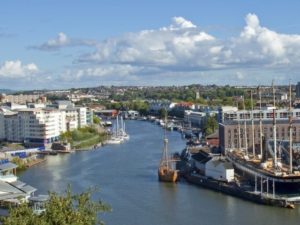Bristol City Council has opened its Traffic Clean Air Zone consultation, providing fleets with an opportunity to give their views on the two proposed options.

As announced last month, the council is looking at whether to implement a Class C charging Clean Air Zone or an eight-hour-a-day diesel car ban.
The Clean Air Zone would charge older buses, coaches, taxis, HGVs and LGVs but not private cars, with charges set at £9 a day for non-compliant taxis and LGVs and £100 a day for HGVs, coaches and buses. It would also include a 24-hour a day, seven day a week HGV weight restriction on the worst polluted routes and a diesel car ban on two sections of streets plus bus and local traffic changes and a scrappage scheme (up to £2,000) for diesel cars.
The diesel car ban would cover a small zone from 7am to 3pm, seven days a week but would not apply to taxis/private hire or emergency services. Other measures, including a scrappage scheme, could also be included.
The council was one of 27 that were named in Defra’s 2017 clean air plans and told that they needed to undertake action to consider the best option to achieve statutory nitrogen dioxide limit values within the shortest possible time.
This included the requirement to undertake a feasibility study and identify options by 31 March 2018 and identify a preferred option by the end of 2018. But although the council came up with a number of possible options a year ago, it has missed deadlines to submit a preferred option, citing concerns over the impact of any scheme on low-income residents.
Commenting on the consultation on the latest plans, Marvin Rees, Mayor of Bristol, said: “Protecting the most vulnerable from pollution is central to our plans and we have developed the two options which we think strike the right balance, reducing toxic fumes in the shortest possible time but in a way that does not adversely affect the people with lowest incomes or widen the inequality divide in the city.”
The council is holding a number of drop-in sessions to give the public the opportunity to discuss the options in more detail.
For more details on the consultation and to give your view, go to www.bristol.gov.uk/trafficcleanairzone.

